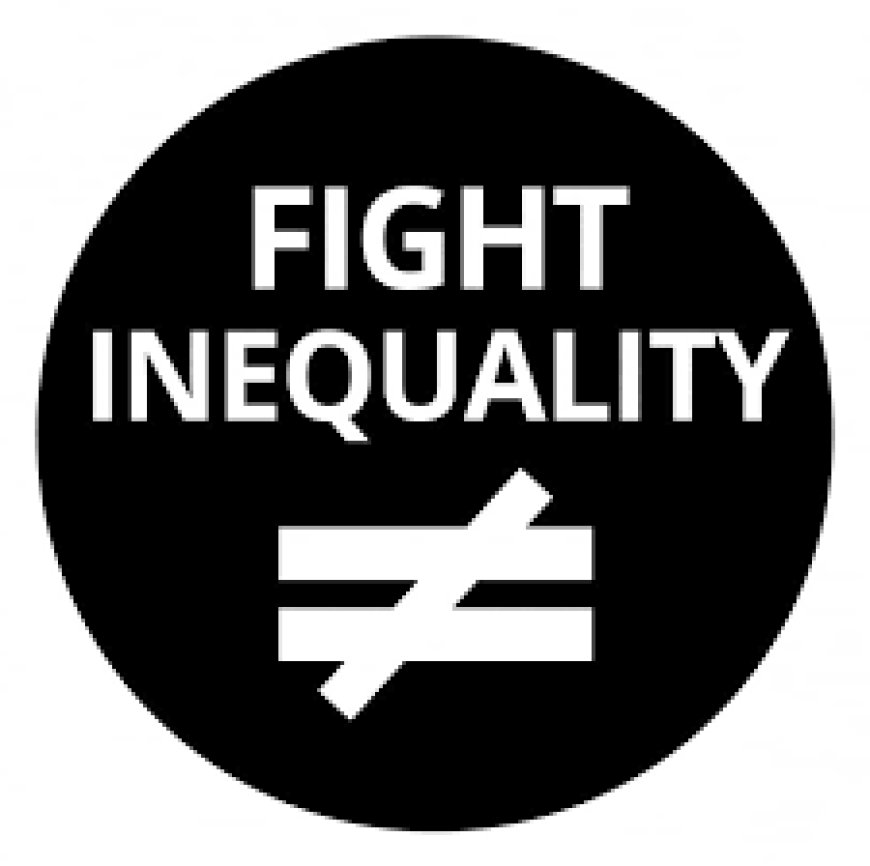The time has come to challenge inequality
Examining the origins of inequality in Bangladesh and proposing practical solutions to build a fairer and more equitable society.

Bangladesh, a small developing nation with a population of 174,638,449 (Worldometer, January 3, 2025), has seen steady economic growth over the last fifteen years, with an annual GDP growth rate exceeding six percent. In recent years, however, this pace has slowed, with GDP growth recorded at 5.82% in 2023, 5.42% in 2024, and a further decline to 5.2% in FY2025 (Bangladesh Economic Review 2017). Despite this economic progress, the development has not yielded results that align with the goals of a just and democratic society. The prevailing system has fostered a harmful cycle of power misuse, institutional abuse, and serious rights violations, subtly perpetuating various forms of inequality. This calls for a multidimensional approach to examine the often-overlooked aspects of inequality and its underlying causes, to gain a deeper and more context-specific understanding of inequality in Bangladesh.
Modern research plays a crucial role in identifying the causes of social inequality and discrimination, and determining the best ways to address them.
Historically, studies on inequality focused on income and wealth disparities in cross-sectional analyses. More recent research, however, examines inequality in social mobility, particularly intergenerational mobility, and how lack of access to essential services like education, water, electricity, and healthcare contributes to inequality.
Inequality in outcomes, such as income and wealth, is often not the fault of individuals, as many argue. Inequality in accessing basic needs prevents a significant portion of the population from advancing socially. The wealthiest individuals remain rich, while the poorest stay disadvantaged, regardless of their efforts.
Global debates among theorists about the dynamics of discrimination have introduced new dimensions of inequality, such as inequality of opportunity and aspects of intergenerational mobility. Professor Amartya Sen’s approach to affordability, which examines poverty beyond income-based measures, helps explore these broader forms of inequality. Research has also shown that education, often viewed as a tool to reduce inequality, can sometimes perpetuate it.
Furthermore, rights-based approaches to inequality have gained attention globally, focusing on issues beyond traditional income or wealth metrics. However, these studies are not given adequate attention in Bangladesh, which leads to limited discussions on how access to justice can combat various forms of discrimination in the country.
Key concerns related to development activities include how institutions and power structures create and perpetuate new forms of discrimination. Institutions, both formal and informal, regulate behavior and expectations. It is well established that institutions have a significant impact on development. Corrupt or malfunctioning institutions—such as inefficient legal systems or underperforming schools—foster systemic discrimination, particularly for those from disadvantaged backgrounds, including low-income, marginalized, rural, or politically suppressed groups.
For example, justice may be delayed or denied to the poor or politically powerless, as legal systems often fail to treat citizens equally, resulting in discriminatory practices and unequal outcomes.
Institutionalized inequality is closely linked to political power dynamics. Policy-driven inequality arises from unequal power relations that influence decisions and resources, deepening inequalities and perpetuating injustice.
In fragile democracies like Bangladesh, the concentration of power among a few and political patronage exacerbate inequality. Unchecked power and a lack of accountability in both public institutions and private corporations allow select groups to benefit at the expense of the majority.
The financial sector in Bangladesh exemplifies this issue, where access to bank loans is highly politicized, leading to high default rates and inadequate funding for essential investments that could contribute to a more egalitarian society.
Significant inequities exist in the financial sector due to political power struggles. When government agencies deviate from their intended roles due to corruption or personal interests of officials, it is the poorest and least politically powerful groups that suffer most.
Given this context, it is important to examine how institutions, politics, and the control of critical resources shape unequal outcomes in contemporary Bangladesh.
The July-August revolution of students and the masses last year aimed to eliminate societal inequality. The current interim government shares the ambition to transition Bangladesh from a least developed to a middle-income country, with aspirations to become a high-income nation by 2041. They seek to foster continued economic growth in the country.
Recommendations:
To address inequality in Bangladesh, the following practical recommendations are proposed:
-
Universal Policies: Policies should be universally applicable, with special attention to the needs of disadvantaged and marginalized communities.
-
Inclusive Policy-making: Ensure greater participation, transparency, and inclusiveness in policy-making processes related to inequality.
-
Government Intervention: Government departments must implement immediate policies and programs to prevent elites from capturing the policy space and redistribute resources to the common people.
-
Employment and Wages: Governments must ensure full employment with at least minimum wages and formalize the informal sector. Discriminatory wages and precarious contractual employment must be eliminated.
-
Access to Basic Services: Ensure widespread access to essential services such as electricity, water, sanitation, healthcare, education, housing, and affordable transport.
-
Social Protection: Implement universal social protection policies and ensure transparency in social security systems.
-
Universal Public Services: End the commercialization and privatization of essential public services like health and education, and instead, provide universal services that meet everyone’s rights.
-
Recognize Care Work: Acknowledge the contributions of unpaid care work, particularly by women, to the national economy.
-
Progressive Tax System: Reform the tax regime to make it more progressive, increasing the tax-to-GDP ratio, and reducing reliance on regressive indirect taxes.
-
Gender Equality: Strictly enforce policies ensuring gender equality, with specific efforts to educate girls and improve the quality and equity of education at all levels.
-
Youth Empowerment: Provide young people, especially young women, with opportunities to develop skills and engage in decision-making processes.
-
Grassroots Engagement: Encourage people's campaigns, grassroots organizations, and mass movements to work together, strengthening efforts to challenge inequality and foster a fairer economic system at the national, regional, and global levels.
What's Your Reaction?




















































































